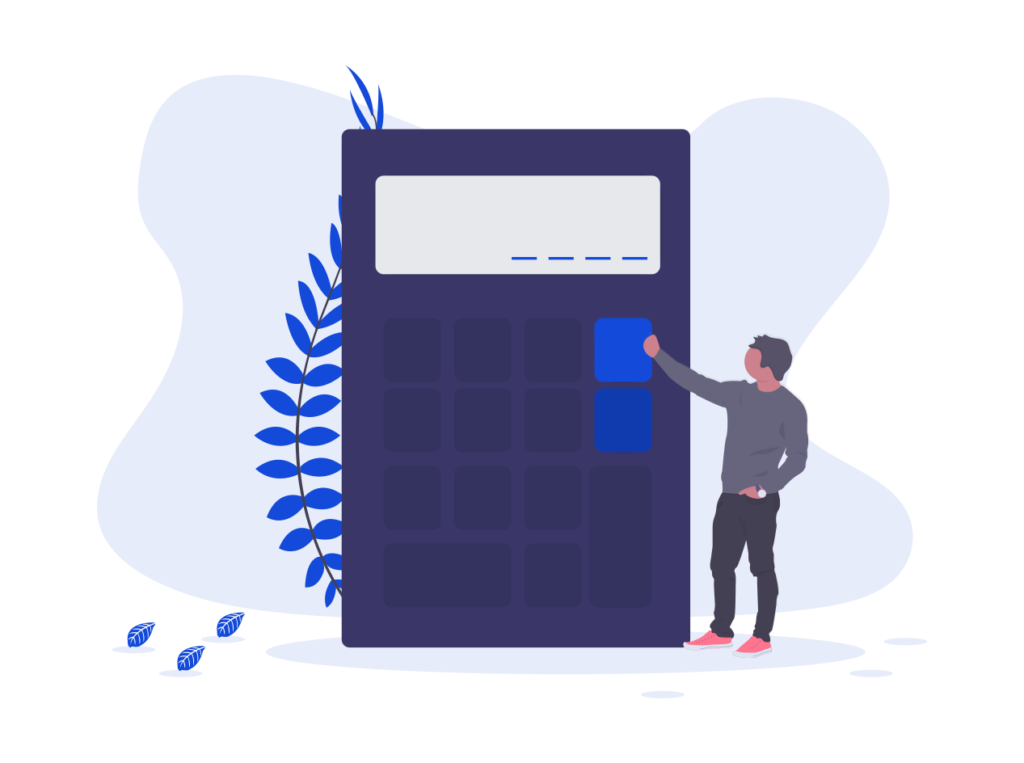If you’ve recently set up your business, or have been thinking about registering your business for VAT lately, it’s important for you to stay informed and know what the government expects from you and your business.
That’s why we’ve compiled this article, outlining what VAT is and what you can anticipate from registering your business for VAT.
Read on to see if applying for VAT is the right option for you and your business.

What is VAT?
Value Added Tax, or VAT for short, is the tax added to the sale of goods and services in the UK. It is an additional charge to the consumer that is added on top of the business’ goods or services. It is considered as an ‘indirect tax’ because it is collected by the business on the behalf of HMRC (the government).
The standard rate of VAT in 2021 is 20% with some goods and services being at the reduced rate of 5% and the ‘zero rate’ of 0%.
Different goods and services will fall into these 3 categories and some products and services, such as, antiques, insurance and gambling services are exempt from VAT charges.
Check the GOV.UK website to see what VAT rates your business’ goods or services fall into, here.
Do I need to register for VAT?
If your business has a taxable revenue of over £85,000 per full working annum, it is a legal requirement to register your business for VAT. If you are earning over the VAT threshold (£85,000) and do not register for VAT within 30 days after reaching the threshold, you could face a big fine.
If your business is located online or outside of the UK, but are selling products within the UK or to UK customers, then you must also register for VAT if you are earning over the VAT threshold.
Should your business’ revenue be lower than £85,000 on a 12-month rolling calendar, you do not need to register your business for VAT. However, you can voluntarily choose to apply for VAT for your business.
Voluntarily applying for VAT can impact your business in many ways – both positively and negatively.
Keep reading for the advantages and disadvantages of applying for VAT voluntarily.
Advantages of applying for VAT voluntarily:
- Your business status
As a small business or a start-up, applying for a VAT status can help make your business seem bigger than it actually is. Having a VAT status will offer a better chance at competing with larger companies and brands.
Charging VAT on your products or services will suggest to consumers that your business is above the taxable threshold, therefore, successful.
Not to mention, when you apply for VAT, you will receive a unique VAT registration number. You should incorporate this number into all of your invoices, as it guarantees professionalism and allows consumers to feel confident in your business.
Overall, helping you to gain a wider circle of suppliers and customers from your premium-looking status.
- Prevent the penalties
It is your responsibility to keep an eye on your business’ income and growth. If you surpass the VAT threshold without realising, you’ll likely find a hefty bill waiting for you.
Don’t think that HMRC will allow your income to go unnoticed. Applying for VAT voluntarily will help you to avoid any nasty and unexpected financial losses.
- Reclaim your VAT
One of the bigger advantages to becoming VAT registered is that, not only do you charge VAT on top of your product or service (output tax) but you can also claim back on any VAT you purchased on goods and services for your own business (input tax).
If your business has just begun, you’ll know that you have to invest a lot into it before guaranteeing that you’ll break-even on your expenditure in the first few months. Therefore, your input tax will be pretty high and will most likely exceed your output tax.
By claiming VAT tax back from HMRC, it can help lighten the financial strain in early stages of setting up your business. As well as, keep your expenses down throughout the entirety of your business’ operation.
- VAT can be backdated
You can reclaim all of you VAT expenditure up to 4 years previously after registering your business for VAT. However, to claim your VAT back, you will need to have proper VAT records and past invoices ready to show HMRC.

Disadvantages of applying for VAT voluntarily:
- Price increase
Depending on what products or services your business offers, your prices can increase up to 20% (standard VAT rate) of its full value. For example, if you sell a product listed at £20 without VAT, then your new price will be £24 with the 20% standard VAT rate. In succession, resulting in an extra cost to your customer, yet no extra cost to the business.
Not to mention, if your business’ target customers aren’t VAT registered, they will not be able to claim back the VAT on your products and services.
Having a higher price tag could result in your customers to shy away or look for other competitors within the small business realm that aren’t VAT registered and don’t add VAT to their products and services.
- Admin and paperwork duties
If your company becomes VAT registered, expect to dedicate some extra time to your VAT accounting records. You will need to construct VAT invoices, log/keep all invoices and receipts and file VAT returns every 3 months to HMRC.
The paperwork is compulsory to all VAT registered businesses.
- Cashflow
Following on from your admin and paperwork duties, keep a close eye on your cashflow as if your output tax exceeds your input tax, HMRC are likely to pick up on your earnings and are likely to issue you a heavy tax payment.
In other words, make sure that you’re not claiming back more VAT from business purchases than you’re accumulating on your own products and services from your customers.

Voluntarily applying for VAT has many pros and cons. Hopefully by now, you’re well informed on how VAT can help to assist your business and now you’re able to make the best possible decision for your business.
For more information and help on how to manage your companies VAT, check out our other guides or look at what services we offer for businesses like yours at Count.